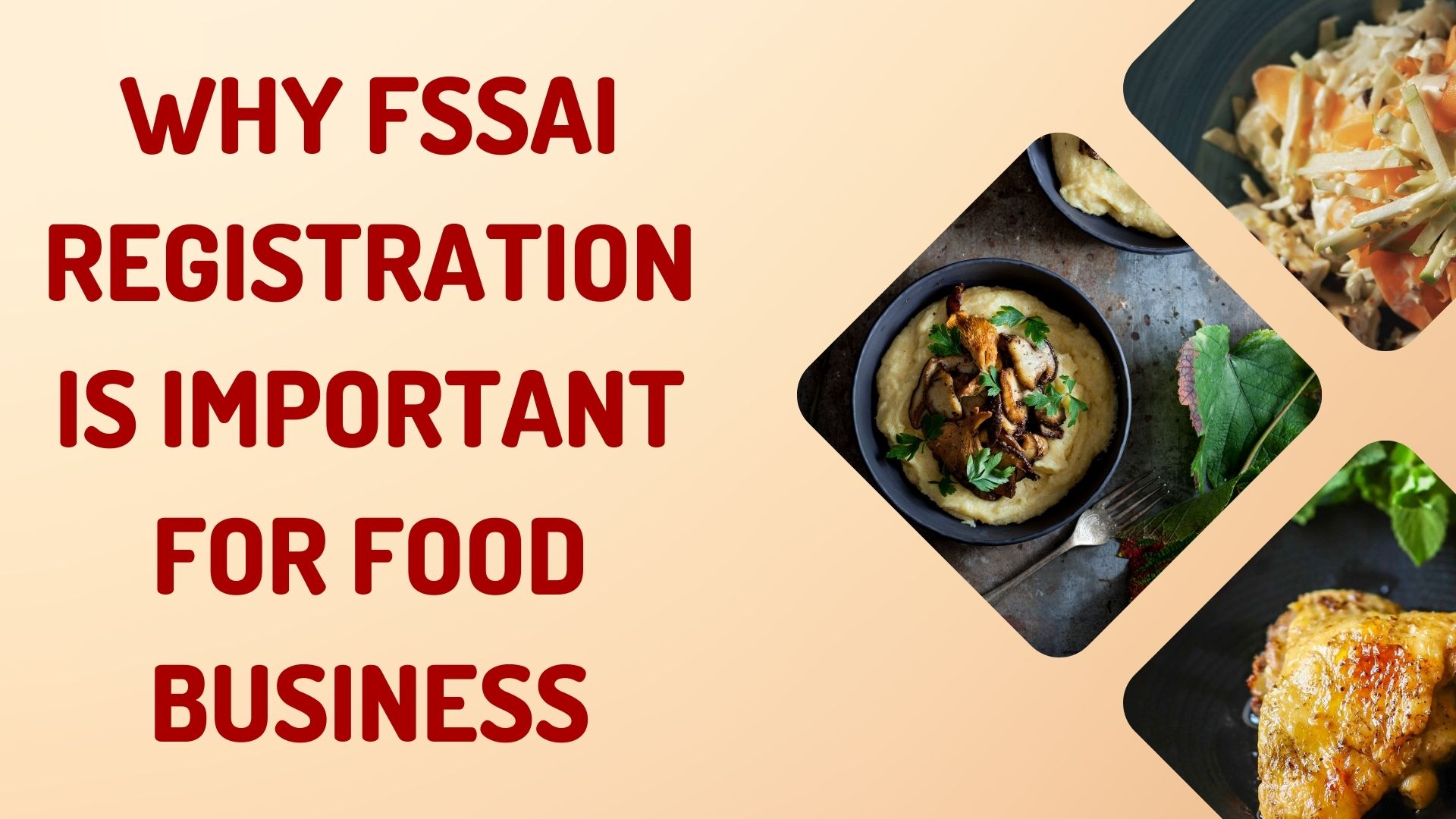
Why FSSAI Registration is Important for Food Business
In today’s dynamic food industry, ensuring the safety and quality of products is paramount. With increasing consumer awareness and stringent regulatory requirements, obtaining FSSAI Registration has become imperative for food businesses. Here’s why:
Legal Compliance and Regulatory Standards:
FSSAI Registration is not just a legal requirement; it signifies compliance with government regulations and standards. It ensures that food products meet the necessary safety and quality benchmarks, safeguarding public health.
Consumer Trust and Safety:
For consumers, food safety is non-negotiable. FSSAI Registration acts as a mark of trust, assuring consumers that the food they consume is safe and of high quality. This trust not only retains existing customers but also attracts new ones, contributing to long-term business success.
Market Access and Expansion:
FSSAI Registration opens doors to wider markets, both domestically and internationally. Many retailers, wholesalers, and online platforms mandate FSSAI Registration for listing products, thereby expanding market reach. Moreover, in the global market, FSSAI certification enhances credibility and facilitates trade partnerships.
Risk Mitigation and Crisis Management:
Compliance with FSSAI regulations minimizes legal risks and liabilities associated with food safety incidents. In the event of a crisis, having proper registration streamlines communication with regulatory authorities and consumers, enabling swift and effective resolution.
Supply Chain Transparency and Accountability:
FSSAI Registration promotes transparency across the supply chain. From sourcing raw materials to manufacturing and distribution, every step is scrutinized to ensure adherence to safety protocols. This accountability minimizes the risk of contamination or adulteration, protecting both consumers and the reputation of the brand.
Facilitation of Innovation and Product Development:
Compliance with FSSAI standards encourages innovation in product development. By setting clear guidelines and benchmarks, FSSAI Registration provides a framework for businesses to experiment with new ingredients, processes, and formulations while ensuring safety and quality. This fosters a culture of continuous improvement and drives competitiveness in the market.
Building Brand Reputation and Loyalty:
FSSAI Registration serves as a badge of credibility for food businesses. It demonstrates a commitment to quality and safety, which resonates with conscientious consumers. A positive reputation for adherence to FSSAI standards not only attracts customers but also fosters brand loyalty, leading to repeat purchases and positive word-of-mouth referrals.
Empowerment Through Knowledge and Training:
The FSSAI not only regulates but also educates and trains stakeholders in the food industry. Through workshops, seminars, and online resources, businesses can enhance their understanding of food safety practices, hygiene standards, and regulatory requirements. This empowerment equips them to proactively address challenges and adapt to evolving industry norms.
Continual Compliance and Improvement:
FSSAI Registration is not a one-time process but an ongoing commitment to compliance and improvement. Regular inspections, audits, and reviews ensure that businesses maintain standards over time. This continual compliance not only mitigates risks but also fosters a culture of quality consciousness and responsibility within the organization.
Promoting Public Health and Well-being:
FSSAI Registration plays a crucial role in promoting public health and well-being by ensuring that food products are safe for consumption. By adhering to FSSAI standards, businesses contribute to the prevention of foodborne illnesses and the maintenance of overall public health. This, in turn, leads to a healthier population and reduces the burden on healthcare systems.
Enhancing Export Opportunities:
FSSAI Registration is often a prerequisite for exporting food products to international markets. By obtaining FSSAI certification, businesses gain access to global trade opportunities, expanding their customer base and revenue streams. Compliance with international standards also enhances the reputation of the business in the global market, fostering trust among international consumers and partners.
Strengthening the Food Ecosystem:
FSSAI Registration fosters collaboration and coordination within the food ecosystem. By bringing together food businesses, regulatory authorities, industry associations, and consumers, FSSAI creates a platform for dialogue, knowledge sharing, and collective action. This collaborative approach strengthens the resilience and sustainability of the food ecosystem, ensuring its continued growth and development.
Encouraging Sustainable Practices:
FSSAI Registration encourages the adoption of sustainable practices throughout the food supply chain. From responsible sourcing of ingredients to eco-friendly packaging and waste management, businesses are incentivized to minimize their environmental footprint. This commitment to sustainability not only benefits the environment but also resonates with socially conscious consumers, driving demand for environmentally friendly products.
Empowering Consumer Choice:
FSSAI Registration empowers consumers to make informed choices about the food they consume. By providing access to information about the safety and quality of food products, FSSAI enables consumers to make decisions that align with their dietary preferences, health goals, and ethical values. This transparency fosters trust between businesses and consumers, strengthening the bond between them.
Note: Now you can apply for fssai license renewal through fssai portal.
Conclusion:
In a competitive and increasingly discerning market, FSSAI Registration is not just a checkbox; it’s a strategic imperative for food businesses. By prioritizing safety, transparency, and consumer trust, businesses can not only meet regulatory requirements but also thrive and differentiate themselves in the market. Ultimately, FSSAI Registration is not just about legal compliance; it’s about building a resilient, reputable, and customer-centric food business that prioritizes the well-being of its consumers.





Leave Your Comment